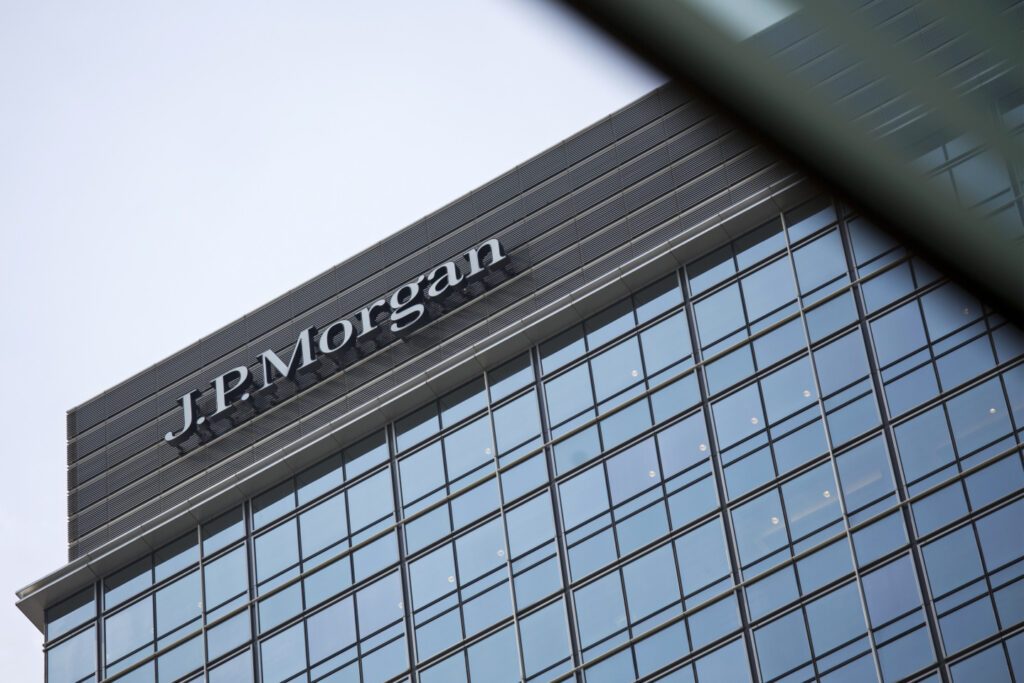In the rapidly evolving landscape of financial technology, JPMorgan has emerged as a trailblazer with a groundbreaking development in current blockchain technology. This major advancement is poised to revolutionize how companies conduct financial transactions, offering an automated and seamless process for transferring funds between accounts.
Understanding JPMorgan’s Blockchain Breakthrough
JPMorgan’s foray into blockchain technology represents a significant milestone in the financial sector. The technology, which underpins popular cryptocurrencies like Bitcoin and Ethereum, is now being harnessed by one of the world’s leading financial institutions to streamline and enhance traditional banking processes.
The integration of blockchain technology by JPMorgan is designed to facilitate automatic fund transfers between accounts. This means that businesses can enjoy increased efficiency, reduced processing times, and enhanced security in their financial transactions. The implications of this development extend far beyond the realm of banking, influencing how companies manage their finances on a day-to-day basis.
The Mechanics of JPMorgan’s Blockchain Solution
At the core of JPMorgan’s blockchain breakthrough is a sophisticated and secure system that enables the automatic transfer of funds. The technology leverages a decentralized ledger, where transactions are recorded and verified across a network of computers. This ensures transparency, immutability, and resistance to tampering—key attributes that fortify the reliability of financial transactions.
The process begins with the initiation of a fund transfer request by a participating company. Using JPMorgan’s blockchain platform, the request is transmitted across the network, triggering a series of smart contracts. These self-executing contracts automate the verification and validation processes, ensuring that the transaction meets all predefined criteria before proceeding.
Once the smart contracts validate the transaction, the funds are transferred automatically between the respective accounts. This seamless process not only accelerates the speed of transactions but also minimizes the risk of errors and discrepancies that may arise in manual processing.
Benefits for Companies
The adoption of JPMorgan’s blockchain technology comes with a myriad of benefits for companies engaged in financial transactions. One of the primary advantages is the speed at which funds can be transferred. Traditional bank transfers often involve delays due to intermediary processes and clearance times. With blockchain, transactions occur in near real-time, providing companies with unprecedented liquidity and flexibility.
Moreover, the automated nature of the process significantly reduces the administrative burden on businesses. Manual initiation and approval of fund transfers are prone to human errors and can be time-consuming. JPMorgan’s blockchain solution alleviates these challenges by introducing a secure and automated mechanism, allowing companies to focus on strategic financial decisions rather than mundane operational tasks.
Enhanced Security Measures
Security is paramount in the financial sector, and JPMorgan’s blockchain solution addresses this concern with robust measures. The decentralized nature of the blockchain ensures that no single entity has control over the entire network, making it resistant to cyber threats and unauthorized access.
Each transaction is cryptographically secured, adding an extra layer of protection against fraud and unauthorized alterations. The immutability of the blockchain ledger further enhances security by preventing retroactive changes to transaction records. Companies can thus conduct their financial affairs with confidence, knowing that the integrity of their transactions is safeguarded by cutting-edge technology.
Future Implications and Industry Outlook
As JPMorgan’s blockchain technology gains traction, its implications for the financial industry are profound. The efficiency and security offered by this automated fund transfer system are likely to prompt other financial institutions to explore similar solutions. The industry may witness a paradigm shift towards the widespread adoption of blockchain technology in various financial processes.
The versatility of blockchain extends beyond fund transfers, opening the door to innovations in areas such as supply chain finance, trade settlements, and even regulatory compliance. JPMorgan’s bold step sets a precedent for technological innovation in finance, encouraging other players to invest in research and development to stay ahead in this dynamic landscape.
Conclusion
In conclusion, JPMorgan’s major development in current blockchain technology, enabling automatic fund transfers between accounts, marks a significant leap forward in the financial sector. The adoption of blockchain not only enhances the speed and security of transactions but also positions companies at the forefront of technological innovation.
The transformative impact of JPMorgan’s blockchain solution goes beyond immediate operational improvements, paving the way for a future where financial processes are more streamlined, secure, and adaptive to the evolving needs of businesses. As we stand on the cusp of this technological revolution, one thing is clear—JPMorgan’s foray into blockchain technology is a harbinger of a new era in finance.
